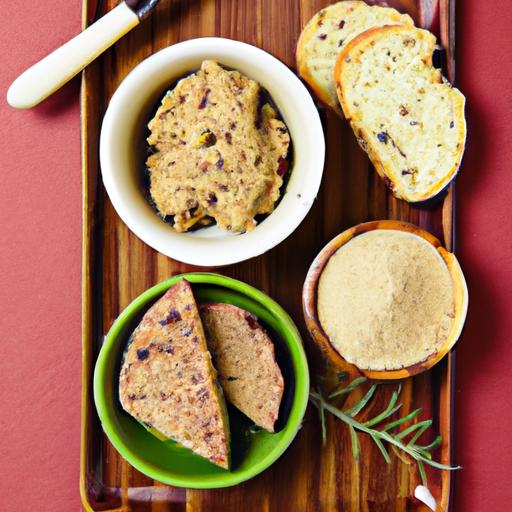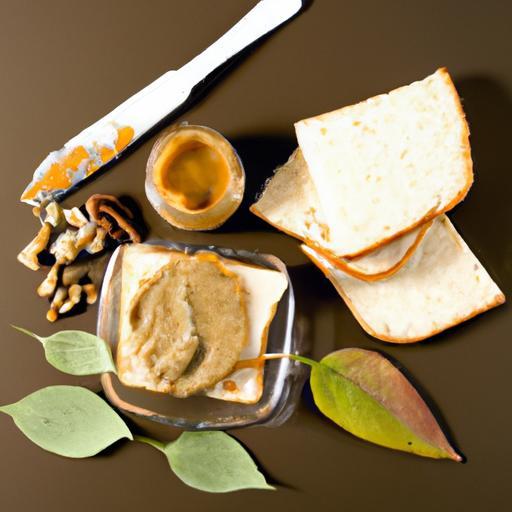Imagine the rich, creamy texture of your favorite nut butter – now envision a spread just as luscious, but entirely free from nuts. Enter sunflower seed butter, a golden-hued marvel rising quietly into kitchens and lunchboxes around the world. More than just an allergy-friendly alternative, this vibrant spread boasts a unique flavor and a powerhouse of nutrients, inviting us to rethink what it means to enjoy a wholesome, satisfying treat. In this article, we’ll unveil the story behind sunflower seed butter, explore its many benefits, and discover why it’s quickly becoming nature’s go-to nut-free sensation.
Sunflower Seed Butter holds a remarkable place in allergy-friendly kitchens, offering a creamy, nutrient-dense alternative to traditional nut butters. Renowned for its naturally mild yet slightly sweet flavor, this nut-free spread is a nutritional powerhouse, packed with vitamin E, magnesium, and healthy fats that energize and nourish your body. Whether baked into cookies or swirled into smoothies, sunflower seed butter’s versatility makes it the perfect pantry staple for creative cooks eager to embrace wholesome, inclusive ingredients.
Prep and Cook Time
Prep Time: 10 minutes
Cook Time: 15 minutes (if roasting seeds fresh)
Yield
About 1 cup of sunflower seed butter (serves 4 as a spread or dip)
Difficulty Level
Easy
Ingredients
- 1 ½ cups raw sunflower seeds, shelled and rinsed
- ½ teaspoon fine sea salt (adjust to taste)
- 1-2 tablespoons neutral oil (such as sunflower or light olive oil) for creaminess
- 1 tablespoon honey or maple syrup (optional, for subtle sweetness)
- ½ teaspoon pure vanilla extract (optional, for depth of flavor)
Instructions
- Toast the sunflower seeds: Preheat your oven to 350°F (175°C). Spread the raw sunflower seeds evenly on a baking sheet. Toast for 10-15 minutes, shaking the pan halfway, until golden and fragrant. This step enhances the natural nuttiness and creates a vibrant butter.
- Cool the seeds: Allow toasted seeds to cool completely to room temperature to avoid melting your food processor blades.
- Process the seeds: Transfer the seeds to a high-powered food processor. Pulse for 1 minute until coarse crumbs form.
- Blend to butter: Continue blending, scraping down the bowl every 30 seconds. After about 5 minutes, seeds will release oils and transform into a creamy butter.
- Add salt and optional ingredients: Pour in sea salt, oil, honey or maple syrup, and vanilla. Blend again until fully incorporated and smooth. Adjust texture and sweetness to your preference by adding more oil or sweetener.
- Store properly: Transfer to an airtight jar and refrigerate. Consume within 2-3 weeks for peak freshness.
Tips for Success
- For ultra-smooth texture, process longer and add oil gradually.
- Unsalted seeds: Toast and salt yourself for better control over sodium.
- Allergy alert: Always verify seed source to ensure contamination-free sunflower seed butter.
- Make-ahead: Store at room temperature for up to one week; refrigerate for longer shelf life.
- Customization: Stir in cinnamon, cacao nibs, or ground flaxseed to boost flavor and nutrition.
Serving Suggestions
Sunflower seed butter shines when paired with fresh fruit slices, spread on whole-grain toast, or dolloped atop oatmeal. Try swirling it into yogurt for a creamy burst or incorporating it into salad dressings and sauces for a nut-free richness. Garnish with toasted sunflower seeds for delightful crunch and visual appeal.
| Nutrient | Per 2 Tbsp (32g) |
|---|---|
| Calories | 190 |
| Protein | 5g |
| Carbohydrates | 7g |
| Fat | 16g |
Internal Link: Enhance your allergy-friendly kitchen with our top nut-free snack ideas perfect for every appetite.
External Source: For additional insight into sunflower seeds’ health benefits, visit the Harvard T.H. Chan School of Public Health.

Q&A
Q&A: Sunflower Seed Butter – Nature’s Nut-Free Spread Unveiled
Q1: What exactly is sunflower seed butter?
A1: Sunflower seed butter is a creamy, spreadable paste made from roasted sunflower seeds. Often called “nature’s nut-free butter,” it offers a delicious alternative to traditional nut butters like peanut or almond butter – perfect for those with nut allergies or anyone seeking a new flavor adventure.
Q2: How does sunflower seed butter compare to nut butters in taste and texture?
A2: Sunflower seed butter has a rich, slightly earthy flavor with subtle hints of sunflower’s natural sweetness. Its texture is smooth and creamy, sometimes a bit grainier depending on the brand or homemade preparation. Unlike the intense nuttiness of peanut butter, sunflower seed butter brings a mild, versatile taste that complements both sweet and savory dishes.
Q3: Is sunflower seed butter safe for people with nut allergies?
A3: Yes! Since sunflower seeds are seeds, not nuts, sunflower seed butter is an excellent nut-free alternative. It provides a safe option for those with tree nut or peanut allergies, making it a popular choice in schools and allergy-conscious households.
Q4: What nutritional benefits does sunflower seed butter offer?
A4: This buttery spread is packed with protein, healthy fats, vitamins (like vitamin E), and minerals such as magnesium and zinc. It’s a heart-healthy choice that promotes skin health, supports the immune system, and can provide sustained energy throughout the day.
Q5: Can sunflower seed butter be used in recipes the same way as peanut butter?
A5: Absolutely! You can spread it on toast, swirl it into smoothies, blend it into sauces, bake it into cookies, or dollop it onto oatmeal. Its mild flavor enhances dishes without overpowering other ingredients, making it a wonderfully adaptable kitchen staple.
Q6: Are there any tips for choosing or storing sunflower seed butter?
A6: When shopping, look for varieties with minimal added sugars or oils to keep it wholesome. Because it contains natural oils, sunflower seed butter can separate over time-just stir well before use. Storing it in a cool, dark place or the refrigerator can help maintain freshness and extend shelf life.
Q7: Why should someone consider adding sunflower seed butter to their diet?
A7: Beyond its allergy-friendly status, sunflower seed butter offers variety and nutrition. It’s a tasty way to shake up your spreads, boost your intake of essential nutrients, and enjoy the benefits of a plant-powered, all-natural superfood straight from the sunflower’s heart. Give it a try-you might just fall in love with this golden, creamy delight.
To Conclude
As the golden petals of the sunflower turn to catch the sun, so too does sunflower seed butter capture the wholesome essence of nature’s bounty-offering a nut-free alternative that doesn’t skimp on flavor or nutrition. Whether you’re navigating allergies, seeking new culinary adventures, or simply embracing plant-based goodness, this creamy spread invites you to savor the sunflower’s story with every bite. Beyond its modest origins, sunflower seed butter stands tall as a versatile and delicious pantry hero-proof that sometimes, the best discoveries bloom from the simplest seeds.












